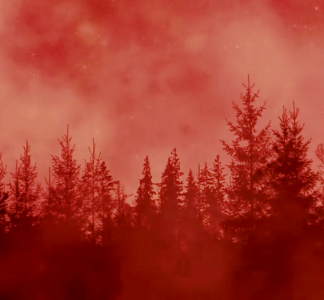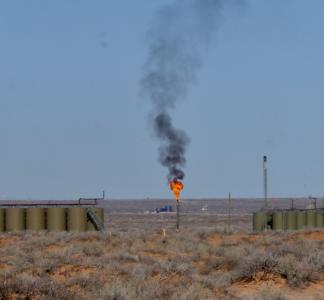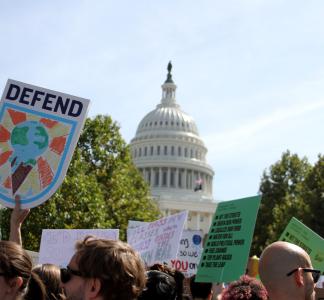Stories from the Permian Basin: Cynthia Gonzalez
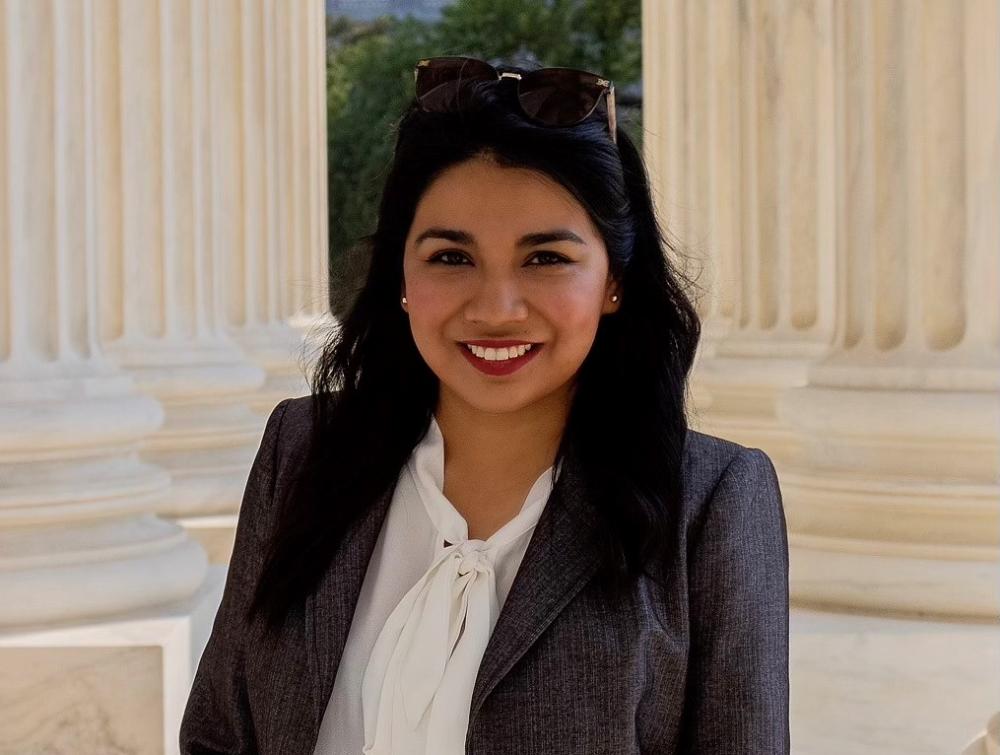
Cynthia Gonzalez
Cynthia Gonzalez lives in El Paso, where she works as an advocacy coordinator for the St. Colomban Mission for Justice, Peace and Ecology, focusing on environmental justice and migration. We spoke with her about her experience working with migrant families that find employment in the oil and gas fields. Here’s what she had to say: (This interview was edited and shortened for clarity)
"Globally, we are seeing migrants escaping conditions of severe poverty, violence, oppression and corruption. This migration continues to be exacerbated by natural disasters caused by climate change and ecological crisis. Where I live, I see so many migrants reaching our border risking it all for a chance at a better life—just a chance of living a decent, dignified life.
What I see is just so many people simply fighting for their life—to survive. I am the advocacy coordinator for the St. Colomban Mission for Justice, Peace and Ecology, a faith-based organization that works to promote and protect the earth and marginalized communities around the world. I oversee their policy and advocacy work around the issues of environmental justice and migration. I was born and raised in El Paso, Texas.
Once migrants [settle] in the U.S. and locally in El Paso, they are getting pulled into these [oil and gas] industries in the Permian Basin. Many families from El Paso are often separated.
For example, the husband leaves to work at the oil and gas fields in Hobbs or Odessa and they only come back to see their families once a month or [every] few weeks. If they had a choice of another employment here they would not have to do all of that, but it’s the lack of opportunities and options. Already vulnerable communities end up even more at risk because they have no choice. They know that [the oil and gas industry] is a dangerous field for themselves – for their health. But at the same time, they need to put bread on their table, so their hands are tied in many ways.
Recently I went to visit and to meet with a group of families who live in the Permian Basin and their families worked on the [oil and gas] field. This is a primarily immigrant community. A lady who I was talking to was sharing all of the struggles of the families who are working out there knowing that their husbands are in danger of getting severely ill and having no choice.
And at some point in that conversation, this woman looks at me and asks: ‘If people know that this is killing us, why don't they enforce rules and regulations to protect us?’
And she looked me directly in the eye. She was asking the question: 'Aren't there supposed to be people who should take care of us and that should see that we are getting hurt, that we're in danger of dying, that some of us are dying?' She meant government officials and laws.
At the moment, I felt she was really asking me directly this question and it touched me very much as an advocate that works in this field. Because you know what the answer was?
‘You're right. They don't care about your life. They don't care that you're getting sick. They don't care that you're dying.’ I felt a huge responsibility to her and that community. I feel an obligation to ask that question to our government.
I have an opportunity to use my voice to get an answer to that question and a solution to their problem. Isn’t every life worth of dignity and respect? Shouldn’t we all be working to change this so that answer is actually: ‘Yes, we do care about you.'
And we all should be working to change this. There's people out there who are being directly impacted and affected right now. And soon it will be more of us who will be impacted the same way."
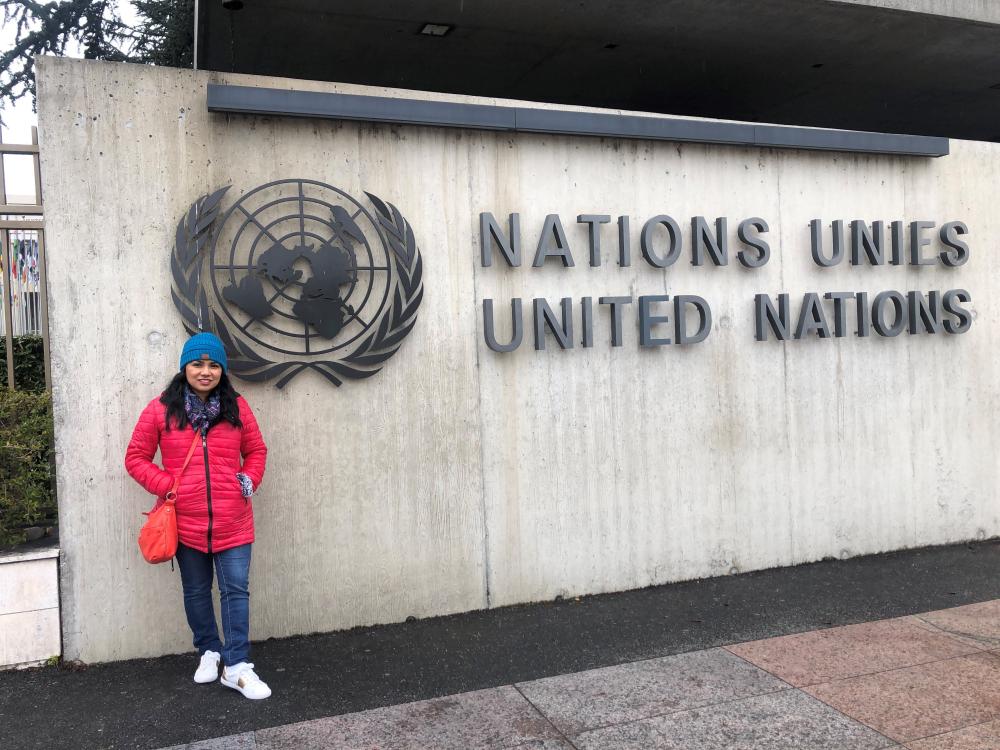
Cynthia at UN office in Geneva attending biodiversity conservation meetings
My main source of hope is the people. It's so easy sometimes to just focus on the policy and get upset and frustrated. But I have the opportunity to work with migrants and see that they're fighting so much. They're giving all their energy for that hope—for that chance of living a better life for them and their children.
I was talking to [the mother of] this family [in the Permian Basin] and the husband has been working in the oil field for so long— I believe 20 years. This has been their source of income. It was how they were able to raise their families. And now one of their kids is soon going to college. And she was sharing with me how he [the son] was already mentioning that he's going to go out of town to another university where they offer other professions. Where he can study something else that could in fact help the environment, because he's seen [the oil and gas industry] so close and how it affects his community.
That is a little step for a family and an initiative to fight this and say: ‘My choices here are limited. And if I stay here, I'll probably work on this same thing. But I want to do better. I want to see what other opportunities are.’
Our role is to offer those opportunities for them. I talked to [these families] and many are ready to say: ‘Teach us. Give us the tools, the training and we could work somewhere else.’ The point right now is that they have no other choices.
[Working in the oil and gas industry] is part of the identity of these communities. And you have neighbors and friends who have history with this. There's a fear that they will lose their jobs and that they would be without any source of income. We just need to learn to listen to them and find solutions together. Everyone deserves to have an opportunity to have a better, safer job and provide a dignified life for their families.
The families, the communities, everybody is just giving their best for that chance of a better future. [I invite] every citizen, every person to find their voice, to find their space where they can advocate for our home, our future and our communities.
This time, we need everybody's support at all levels.
We need people who can help us motivate, encourage, push our politicians and elected officials at all levels, local, state and federal to engage, to take action. Think about how you can be part of this because we need you.
